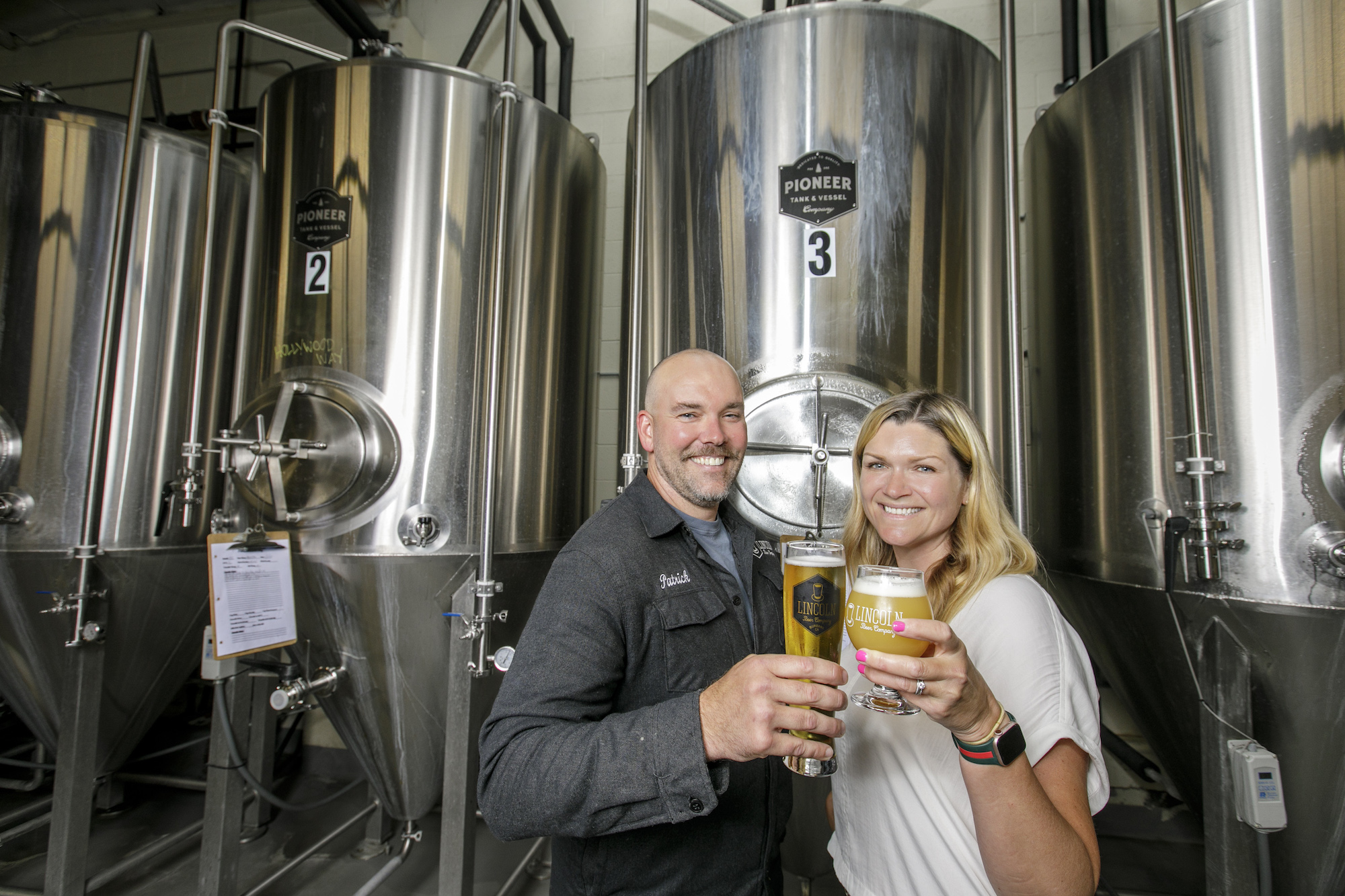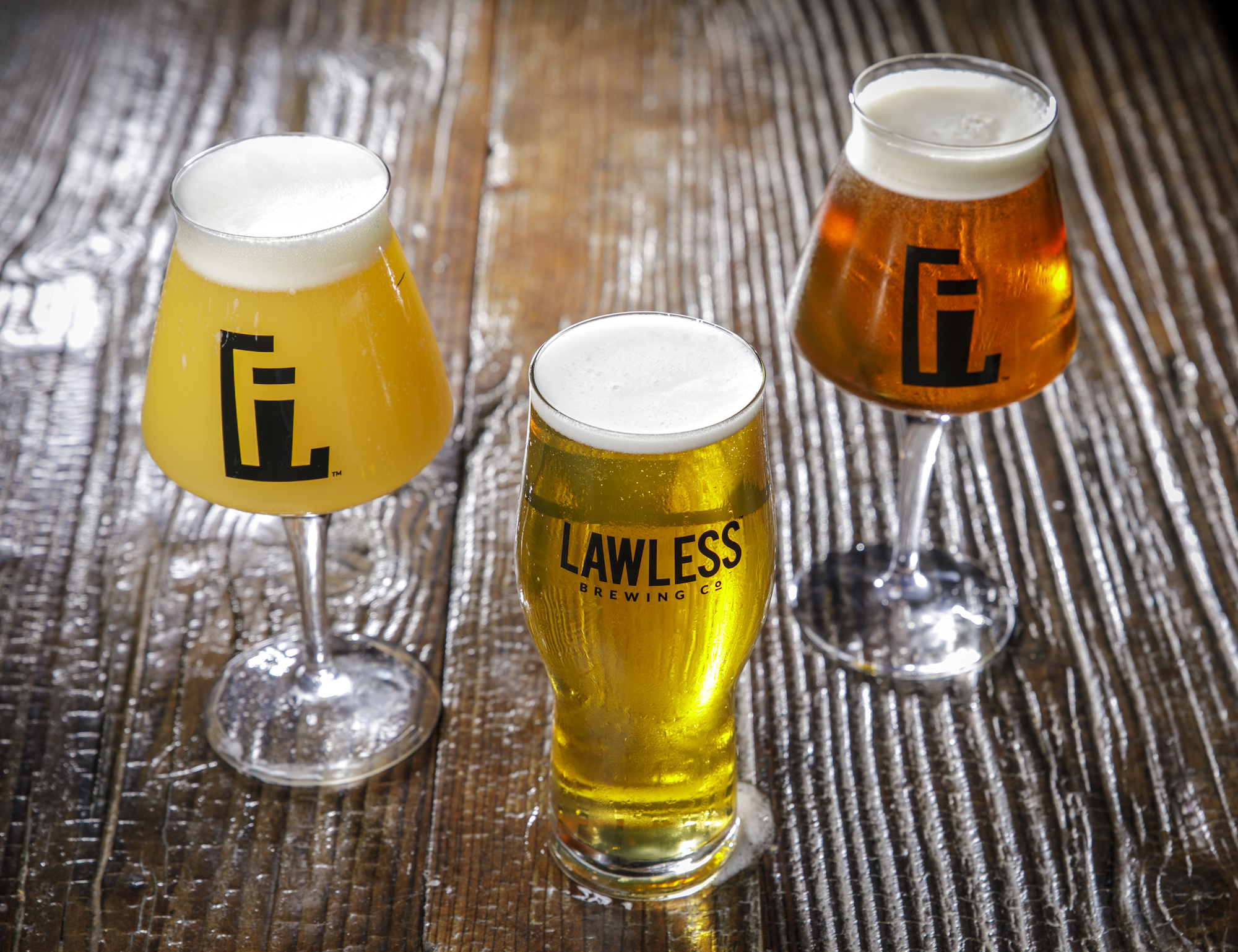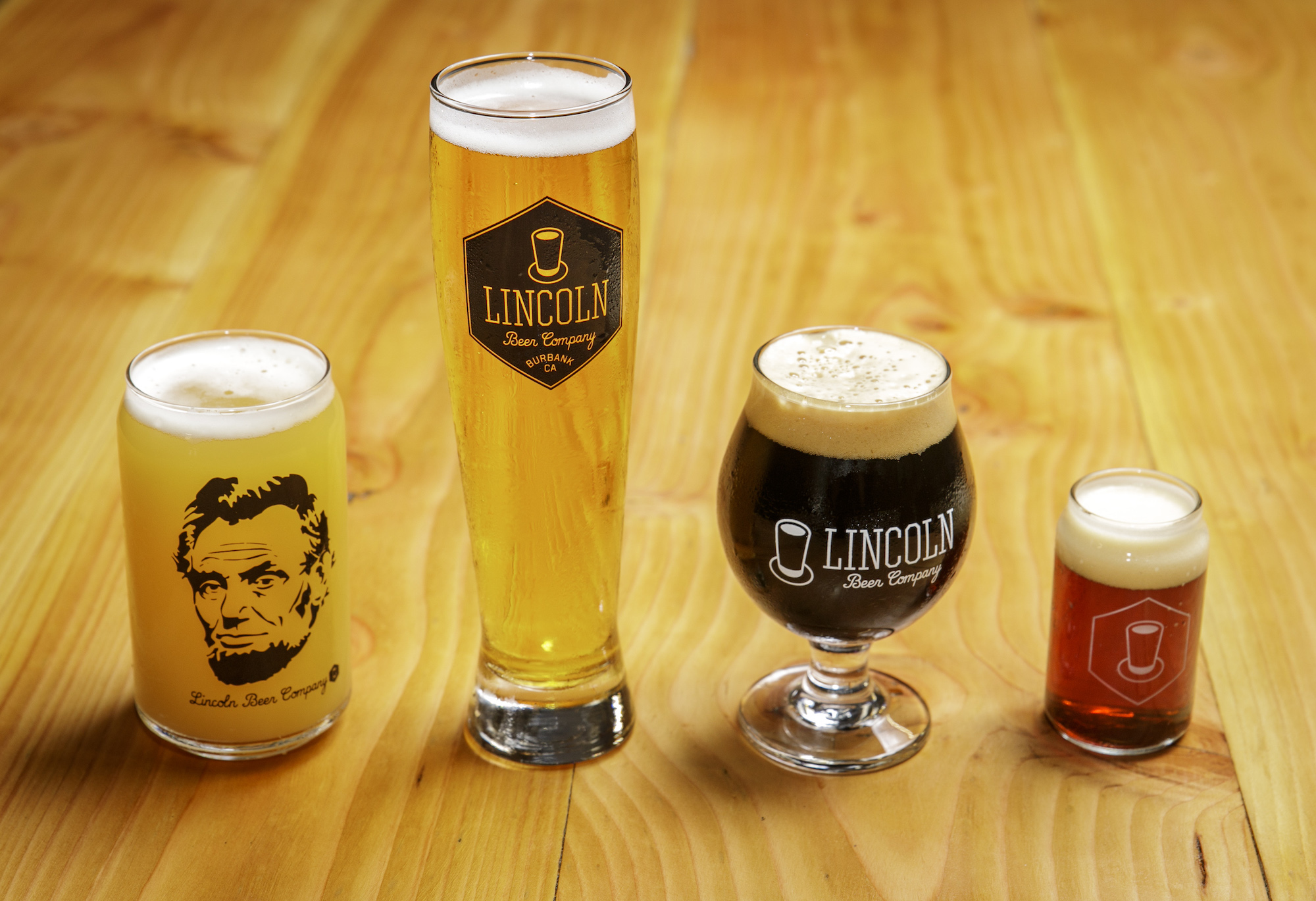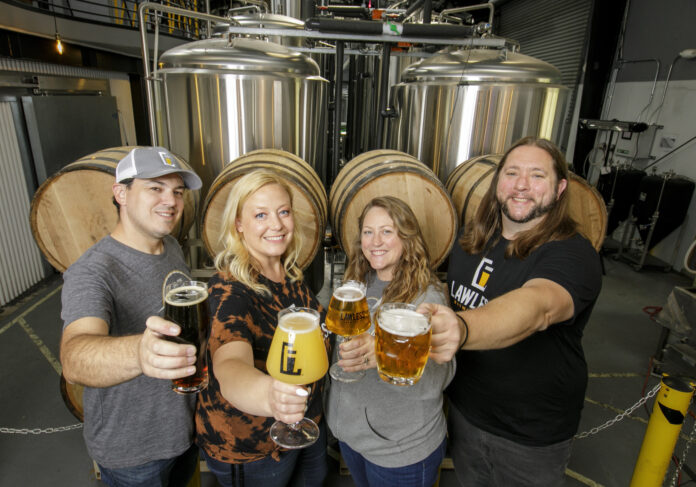As the Los Angeles Brewers Guild gears up for its first Independent Beer Festival in four years this coming weekend, there is much for the local beer scene to reflect upon.
The festival, which will take place in Long Beach, is bringing out nearly all of the 75-member Brewers Guild to showcase their various beverages, hawk swag and network amongst themselves. The event kicks off a full week of festivities for the guild and its members, who all in their own ways fought for their breweries and restaurants during the Covid-19 lockdowns.
“There is so much excitement,” said Samantha Schmitz, president of the brewer’s guild and co-owner of Lucky Luke Brewing in Palmdale. “We haven’t done this event since 2019 and I think we all kind of took for granted how much it was missed just because of the chaos of it all.”
In that chaos, established breweries were forced to pull the trigger on operational changes they were considering — or to reinvent themselves from step one. Others, through the tenacity of their founders, managed to launch and have a grand opening during the height of the pandemic.
“It’s definitely always on our minds to be prepared to pivot,” said Jackie McCombs, operations manager at North Hollywood-based Lawless Brewing Co., which opened its doors in 2021. “That’s what the pandemic taught us. Some breweries did that really well and others learned a lot from it.”
Pandemic responses

One of the first responses to the pandemic in 2020 was to close all in-person dining and drinking, relegating eateries to carry-out or delivery service only. This negatively impacted breweries because not all of them have food operations — or even the ability to bottle or can their beverages.
Depending on their scale, breweries often can only offer their beers and other beverages in their own taprooms, while others primarily distribute through kegs to local bars and restaurants. For many, the prospect of buying and installing a canning system is either economically unfeasible — the systems start at $130,000 and $160,000 and can reach seven figures at a large enough size, without installation or other startup work — or physically impossible, given the limited space some work in. Even those that had existing relationships with a mobile canning service found themselves taking a number to wait.
“If you didn’t have your beer in bottles and cans and suddenly, you’re a to-go model, how the heck do you do that? It was a scramble for a lot of people to be able to accommodate that,” said Schmitz. “You can imagine, Covid hits and (mobile canners) are totally booked up. If you didn’t have your own equipment, then you were kind of left a little bit in the dark.”
Complicating matters, this scramble to pivot from tap to takeaway meant that breweries were some of the first businesses to encounter supply chain shortages, even for those that already canned or bottled in a limited amount.
“We had been doing that (with a mobile canner), but the volume increase was just dramatic. Coors and Miller, those guys bought truckloads of cans and really wiped out the inventory for the little guys,” explained Laura Dunn. She and husband Patrick Dunn founded Lincoln Beer Co. in Burbank in 2017. “What happened during the pandemic was kegs went completely to zero, so we really had to shift everything and instead of putting it in kegs — which are way more profitable — it really hurt us to switch entirely to cans.”
When outdoor dining was permitted, that opened a lifeline for breweries and their taprooms. The brewery has been synonymous with food trucks for years and some operations have in-house food kitchens that allowed an operation to invite customers for a meal — and a drink from the tap.
Macleod Ale Brewing Co. in Van Nuys, which was founded in 2014 and opened its signature pizza kitchen in 2019, was one such location that “lucked out, timing-wise” in that regard, according to its founders.
“We have the pizza kitchen, so that really helped us with the regulations,” said Jennifer Febre, who opened Macleod with husband Alastair Boase. “We have a large parking lot, which we were able to utilize. There were times when we were actually extremely busy during the pandemic and that was good.”
That worked out for Macleod, Febre said, because theirs was one of the operations for which bottling and canning were not economically viable.
“We weren’t hugely into distro (distribution) and we were already suspecting that distro was not profitable for us. When the pandemic struck, it was an opportunity for us to put that program on hold and revisit it at a later date,” she said. “Here we are, at a later date, and we’re still not distributing because we don’t think it’s profitable for us.”
Other models

There’s recalibrating your business during a crisis, and then there’s expanding — or launching — an enterprise during one.
The folks at Lawless Brewing had been working with regulating agencies since 2018 to get everything squared away for their North Hollywood taproom.
“It was just a really long journey to get all of these permits. It was about two weeks before the pandemic when we cleared our big hurdle, which was securing the conditional use permit from the city of L.A.,” explained co-founder Ben Wallace. “After that, it was the buildout process, which happened during the pandemic. It was tough on all of us, but once we could get the doors open, we did.”
There was at least one silver lining to that struggle. Head brewer Josh McCombs, who had prior experience working for other breweries, said the added time gave the team a longer leash to try out different styles and hone their recipes. More recently, Wallace said Lawless began offering ciders and wines as an option for customers who don’t especially care for beer.
“You go into survival mode and sometimes the best things happen out of necessity,” he said. “It’s made us a little lighter on our feet and prompts you to come up with out-of-the-box ideas.”
Sometimes ideas don’t always work out the way they were envisioned. Febre, at Macleod Ale, might be the first to admit that. She and Alistair decided to expand and open a second taproom, in Highland Park, last year. At the same time, they were also working on overhauling their small seven-barrel brew operation in Van Nuys, which was initially cobbled together with a variety of equipment.
“I am Icarus. I flew too close to the sun for sure,” she said. “It was very ambitious to upgrade our brewhouse and get a second location and upgrade that at the same time. Things were more expensive and took longer than we thought. The whole summer went by, and we weren’t able to open until the first week of the slow period (in September) and it was the mother of all slow periods.”
During the fall, Febre said her sales projections were off by as much as 25%. The cold and abnormally rainy winter only exacerbated matters. In November, Macleod Ale actually closed its Highland Park taproom and laid off essentially all of its staff there and in Van Nuys.
Family ultimately came together and helped reboot the business. Highland Park was reopened after three weeks, and family members took shifts in Van Nuys until they were able to bring back employees.
“We just couldn’t sustain that, so we had to put a pause on everything, sadly. We technically laid everyone off and I thought that was the end,” Febre said. “Family stepped in and said, ‘Listen, let’s just go over and pour beer.’ We closed the kitchen for three days, but eventually our kitchen manager came back and was making pizzas.
“We’ve been working our way back. It’s been a journey,” she added. “It was a combination of a self-inflicted wound and market forces. I’m sure we’re not the only one whose sales were surprisingly down during the winter. And the weather was conspiring against all of us.”
After the growing pains and other struggles, the people behind the breweries are generally viewing the immediate future as bright for their businesses. People are more comfortable going out with family and friends to enjoy a drink and a meal and spirits are the highest they’ve been since 2020.
“Cautiously optimistic is the way to go,” said McCombs, at Lawless Brewing. “We had a pretty strong January and February, which you don’t usually get in this industry. But then all of the rain came. That was a little tough to get through, but the weather is finally cooperating and we’re seeing a lot of people wanting to celebrate graduations and anniversaries and even weddings. We’ve got a pretty great community of regulars built up here. We’ve seen babies born and they’re growing up already. Peoples’ puppies are coming in here as dogs now.”
Expanding industry

It’s clear that the local industry will have much to celebrate. Most businesses can take pride in surviving through the pandemic. And despite the closure of at least six breweries since 2020, overall, the landscape has wildly expanded in the last decade. Since 2013, the number of breweries in Los Angeles County has grown from roughly 15 to nearly 80.
Schmitz said she feels like more cities in the county have become open to them in recent years, and the people trying to start one no longer have to explain to community residents and leaders what a craft brewery is.
“Some cities are going to be more friendly than others. For the ones that really support them, I think they offer such a unique outlet for people together,” she said. “We give back to our communities so much. I don’t know a single owner who isn’t involved in their community in one way or another. It’s the most connected that I’ve seen business owners as a whole.
“I think it’s becoming a staple in local cities,” Schmitz added.
One of the breweries that has seen it all in L.A. County is Eagle Rock Brewery, which at its 2009 founding was reportedly the first production brewery to open in L.A. city limits since before Prohibition.
After seeing keg sales to restaurants and bars — 70% of its revenue — suddenly stop, Eagle Rock made the challenging pivot to canning. Co-founder Ting Su said that investment paid off for them, considering how restrictions oscillated and how the pandemic ultimately altered the habits of consumers. It was a move the brewery had been considering, and the pandemic “pushed us along rather assertively,” Su quipped.
“We’re not fully back to where we were pre-pandemic, but it’s kind of a rebirth if you will. The landscape has changed quite significantly,” she added. “Consumer habits have changed substantially since the pandemic. People are more inclined to stay in, so that pivot we made with packaging more in cans and formats available to take home has certainly helped out. The food and beverage industry and breweries, we’re all kind of having to feel out how peoples’ habits have changed.”
Nearly the entire membership of the brewers guild is participating in the beer fest, as well as the other parts of beer week. For those that formed during the pandemic, it will be their first such event. For industry veterans like Schmitz and Su, it will be enjoyable to see the new members experience the celebration for the first time.
“It brings me back to when we first opened and the excitement of being at a festival and seeing your beer in the wild, or seeing someone wear your shirt for the first time,” Schmitz said.
Su noted that L.A.’s craft beer scene is still relatively young and that she has enjoyed watching her peers “grow and blossom” here over the years.
“The unique benefit we have in being a young community is the diversity in it,” she said. “Some of the older beer scenes, there’s just not as much diversity and by virtue of being in L.A., which is such a diverse city anyways, there’s been a lot more opportunities for women to get involved in the beer industry. There are people of color getting involved. I feel the community here is much more representative of the general population, and with it, different styles and vibes among the different brews.”
